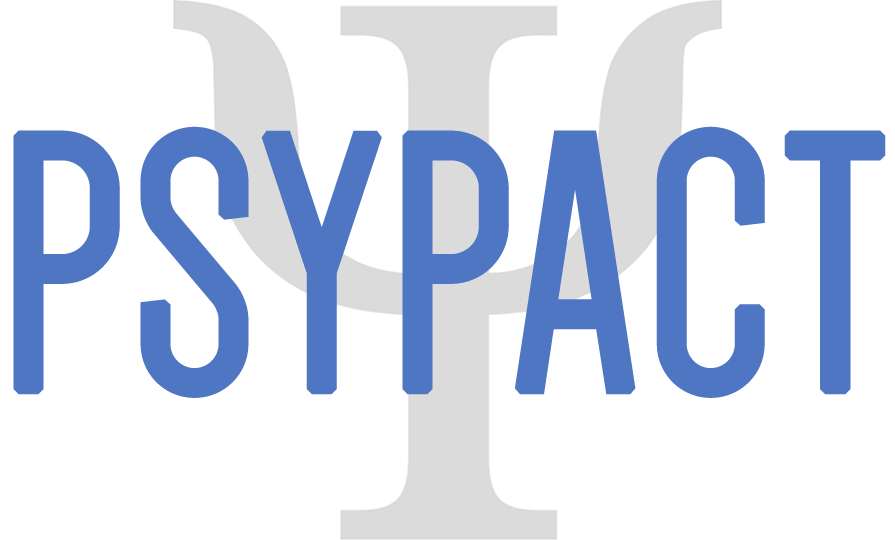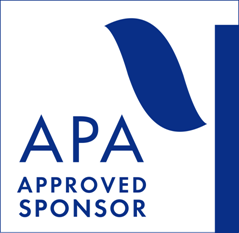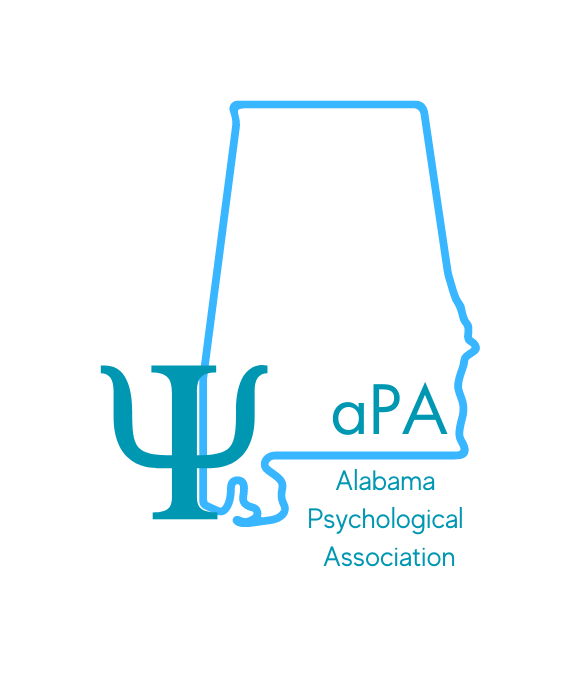
Telepsychology: Legal, Ethical and Regulatory Consideration Inside and Outside of PSYPACT
Presented by:
Janet Orwig, MBA, CAE, Executive Director of PSYPACT and Amy Lerman, Health Regulatory & Telehealth Attorney
This pre-recorded workshop was held on 5/2/25 as a live workshop and is being provided as a homestudy course:
3 CE Credits

The Alabama Psychological Association is approved by the American Psychological Association to sponsor continuing education for psychologists. The Alabama Psychological Association maintains responsibility for this program and its content.

Alabama Psychological Association has been approved by NBCC as an Approved Continuing Education Provider, ACEP No. 6914. Programs that do not qualify for NBCC credit are clearly identified. Alabama Psychological Association is solely responsible for all aspects of the programs.

Registration Fees:
aPA Members - $75.00
Non-Members - $105.00
aPA Student Member - free
Non-Member Student - $25.00 (or join for $10 and workshop if free)
Non-CE Earning Registration - Members - $15.00
Non-CE Earning Registration - Non-Members - $25.00

About the Workshop:
Course Description:
In an era of rapidly evolving technology, telepsychology has become an indispensable tool for expanding access to behavioral health services. However, this transformative modality brings with it a complex web of legal, ethical, and regulatory considerations that demand careful attention. This comprehensive 3-hour course is designed specifically for members of state psychological associations, offering critical insights into the evolving landscape of telepsychology practice. Participants will gain a deep understanding of the foundational principles, legal mandates, and practical applications that govern the delivery of telepsychology services. Key areas of focus will include federal and state regulatory compliance, ethical considerations, and risk management and enforcement. We will provide you with an in depth look at the Psychology Interjurisdictional Compact (PSYPACT), an interstate compact designed to facilitate the practice of telepsychology and the temporary in-person face-to-face practice of psychology across state boundaries. This course will equip you with the essential knowledge and tools to effectively regulate and support the responsible and ethical practice of telepsychology within the states where you practice.
Learning Objectives:
At the end of this presentation, participants will be able to:
1. List and understand foundational knowledge and ethical considerations, including how to define “telepsychology” and differentiate it from other, related terms; and identify and explain core ethical principles that apply to telepsychology services such as confidentiality and informed consent.
2. Describe the evolution of telepsychology and its growing importance in behavioral health care service delivery, including potential benefits and limitations of telepsychology for diverse patient populations.
3. Identify and summarize key federal and state laws that govern telepsychology practice, including state professional licensure requirements, scope of practice considerations, and patient data privacy and security considerations (e.g., HIPAA).
4. Discuss the implications of cross-jurisdictional practice, including what an interstate compact is (and one example of a compact); what specific objectives PSYPACT has achieved and two things PSYPACT allows psychologists to do to ethically and legally practice according to regulations; and what the governing documents for PSYPACT are and where to locate them.
5. Explain the potential consequences of non-compliance with legal and ethical standards in telepsychology, including disciplinary actions, risk of enforcement, and other penalties (e.g., audits, investigations).
General Information:
Video link and hand out matierals will be provided upon completed registration. You will receive a registration confirmation email with the following links:
Workshop Pre-Recorded Video Link
Handouts
Post Workshop Evaluation
Post Workshop Test
Refunds & Grievance Policy: Participants may direct questions or grievances to aPA at (334) 262-8245. An administrative fee of $25 will be charged for cancellation of registration. Please note, no refunds will be granted after May 14th, 2025..
Approval: Particants must view the pre-recorded workshop, complete the Post Workshop Evaluation Form and Score 80% or above on the Post Workshop Test.
Once all requirements have been met, participants will receive a CE Certificate via email that meets the Alabama Board of Examiner's requirements for CE Credit.
Please allow 7-10 business days to receive CE Certificate
Audience:
This presentation is intended for psychologists, other licensed mental health providers and graduate students of psychology. Level of learning is Intermediate.
About the Speakers:

Janet Orwig, MBA, CAE, Executive Director of PSYPACT
Janet Orwig, MBA, CAE in her position with the Association of State and Provincial Psychology Boards (ASPPB) serves as the Associate Executive Officer, Member Services and PSYPACT Executive Director. She is responsible for monitoring state regulatory and legislative actions and overseeing member services including the Psychology Interjurisdictional Compact (PSYPACT). Her 27-year career in association management includes experience in customer service, public relations, advocacy, strategic planning, leadership development, grant management and project and program management. Janet earned her Paralegal Certificate and bachelor’s in business administration from Huntingdon College and her MBA from the University of Phoenix. She is also a Certified Association Executive.
Janet Orwig CV
.png)
Amy Lerman, Health Regulatory & Telehealth Attorney
Amy Lerman is a Health Regulatory and Telehealth Attorney with Epstein, Becker, and Green Law Firm. Amy is the lead author of the firm’s Telemental Health Laws app, a comprehensive survey of state telehealth laws, regulations, and policies for mental and behavioral health practitioners and stakeholders across all 50 states, the District of Columbia, and Puerto Rico. Amy is also a co-author of a Bloomberg BNA portfolio publication titled Navigating the Telehealth Landscape: Legal and Regulatory Issues. Since 2018, Amy has guest lectured on digital health law at Cornell Tech. Before she joined Epstein Becker Green, Amy worked in the health care practice of a large consulting firm. She also worked for a technology company providing customized health care provider profiling / search engines to employer clients.
Amy Lerman, Member of the Firm, Epstein Becker & Green, P.C.
https://www.ebglaw.com/people/amy-lerman (includes references in Insights section)
References:
1. About PSYPACT. https://psypact.gov/page/About . Accessed 15 Jan 2025.
2. Buenger, Michael L. et. al. The Evolving Law and Use of Interstate Compacts. 2nd Edition, Kelly Book and ABA Publishing, 2017.
3 “Interstate Compacts by State – Ballotpedia.” Ballotpedia, https://ballotpedia.org/Interstate_compacts_by_state. Accessed 4 May 2023.
4. APA Guidelines for the Practice of Telepsychology . Accessed 15 Jan 2025 https://www.apa.org/practice/guidelines/telepsychology-revision.pdf
5. “What are Interstate Compacts? - National Center for Interstate Compacts|The Council of State Governments.” https://compacts.csg.org. Accessed 15 Jan 2025.
Program Content:
Standard D.1.2
Program content focuses on ethical, legal, statutory or regulatory policies, guidelines, and standards that impact psychological practice, education, or research.
